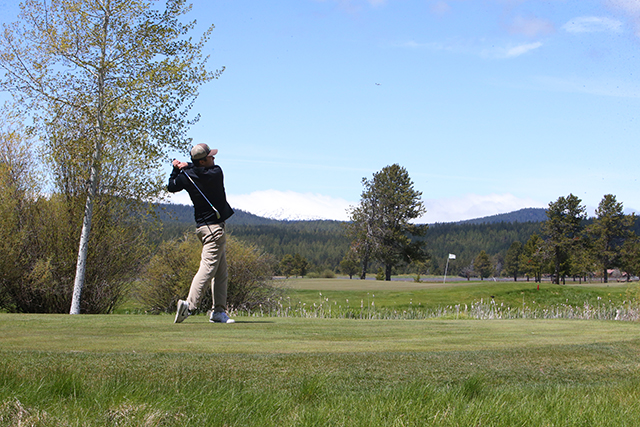Proposal to rezone 710 acres into rural residential receives thumbs up from hearings officer
Published 6:30 pm Friday, June 17, 2022

- stock solar
A proposal to rezone 710 acres of north Deschutes County farmland so it can be used for rural housing is one step closer to reality.
Earlier this month, a public hearings officer decided the proposal meets criteria to be rezoned, and recommended approval by the Deschutes County Commission.
The hearings officer ultimately agreed the majority of the soils on the land were poor enough to not be considered profitable farm land.
The 710 acres of land, which sits near Northwest Coyner Avenue, is surrounded by farmland, federal land and some nonfarm dwellings in rural subdivisions.
The applicant, 710 Properties LLC, is registered to Robert Turner and Charles Thomas III. They are seeking to change the land to RR-10, which means one home per every 10 acres.
The vision is to create an off-grid, solar powered community of 70 rural, residential homes, according to Mark Stockamp, a representative for the project. The project is being financed by Dale Stockamp, Thomas, and Turner, who are all associated with 710 Properties LLC and Central Oregonians, he said.
Mark Stockamp said there is one home on the property, and that it is set up to be off-grid, which inspired the idea to make a solar-powered residential development. “We want to create a very low-impact community,” he said.
The proposed zone change has drawn ire from groups like Central Oregon LandWatch and neighbors to the area, who fear whatever development the zone change allows would draw down groundwater amid a longstanding drought and disturb wildlife and nearby farming operations.
Carol Macbeth, an attorney with LandWatch, said the organization is disappointed in the decision and will request commissioners reverse the decision.
LandWatch argues the property is agricultural land as a matter of law and should be protected for farm use, not turned into “suburban sprawl.” Macbeth said the Oregon Department of Agriculture, the Oregon Department of Fish and Wildlife and the Oregon Department of Land Conservation and Development all took the unusual step of opposing the proposal, explaining in detail why converting the land in this rural farming community to a subdivision is against the law.
“LandWatch is particularly disappointed in the Hearings Officer’s decision because neighboring ranchers testified that they would be interested in purchasing the property or otherwise using it to expand their ranch, and explained in detail why the property is well-suited for ranching, an agricultural use. Speculation in farm and ranch land artificially increases the price of farmland until farmland is priced out of reach for actual farmers and ranchers,” Macbeth wrote in a statement.
Stockamp said he and the team behind the project understand the concern about groundwater. Residential use, however, uses less water than an irrigation well would use for farming, which the land is currently zoned for, he said. An analysis the backers of the project have paid for showed development will interfere with nearby wells by less than 1/2 foot.
“We’re Central Oregonians…we are very aware of the water shortage and the current drought,” he said.
If the zone change is approved, Stockamp said the team has a plan to improve the land to take out juvenile juniper trees, which dominate the landscape and crowd out food for mule deer, like bunch grass. A consultant also has advised ways to develop a wildlife corridor in conjunction with residential development to help mule deer migrate through the area.
“The public can generally think land is best if it’s left alone and nothing happens to it, and I feel like with (the consultant’s) recommendations there’s a lot of ways to improve it,” Stockamp said.
A work session to discuss the proposed zone change is scheduled for June 29, according to Deschutes County Community Development Director Peter Gutowsky.
A public hearing before the commissioners has yet to be set.






